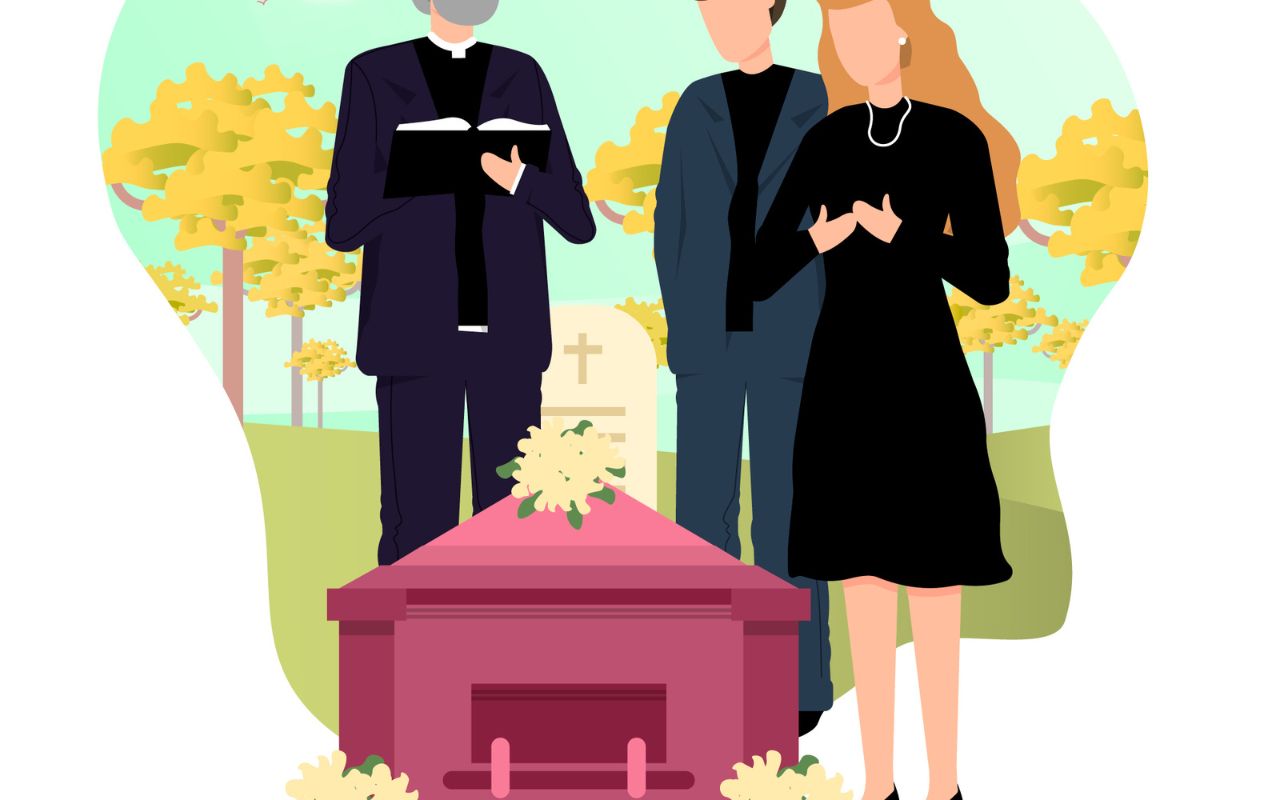Losing a spouse is an emotionally challenging and overwhelming experience, and it’s made even more complex by the practical matters that must be addressed. One such crucial aspect is understanding what entitlements a wife has when her husband passes away.
To navigate this difficult time, it is essential for wives to comprehend their spousal entitlements following the death of their husbands. Knowing your rights and the financial aspects can provide both emotional and financial stability during an otherwise tumultuous period.
In this blog post, we aim to provide comprehensive information and clarity regarding what a wife is entitled to when her husband passes away. We’ll cover legal, financial, and emotional aspects, offering guidance to help widows manage this challenging phase of life.
II. Rights and Entitlements in Marriage:
A. Legal and Financial Aspects of Marriage:
Marriage is not only a union of hearts but also a legal and financial partnership. According to a survey by the American Bar Association, 96% of individuals entering marriage see it as a lifelong commitment with legal and financial implications.
B. Spousal Entitlements During the Husband’s Lifetime:
During the husband’s lifetime, spousal entitlements often include shared property, jointly held assets, and the benefits of any agreements made between the couple. These entitlements can vary depending on local laws and the specific circumstances of the marriage.
C. Community Property vs. Separate Property:
It’s essential to understand the distinction between community property and separate property. In community property states, assets acquired during the marriage are generally considered jointly owned, while separate property includes assets acquired before the marriage or through specific inheritances or gifts. The division of assets can significantly impact a wife’s entitlements, as we’ll explore in more detail.
III. What Happens When a Husband Dies:
A. Legal Processes When a Husband Passes Away: When a husband passes away, there are several legal processes that come into play. These include probate, which is the court-supervised process of distributing a deceased person’s estate, and the execution of the deceased’s will. Statistics show that approximately 53% of Americans do not have a will or estate plan in place, which can complicate matters for the surviving spouse.
B. The Role of a Will and Estate Planning: The existence of a will and proper estate planning can significantly influence the entitlements of a surviving wife. A well-structured will can outline how the deceased’s assets are to be distributed, including what the surviving spouse should receive. According to recent data, only 32% of Americans have a will, indicating a potential gap in ensuring spousal entitlements.
C. Importance of Knowing State Laws: State laws regarding inheritance vary, so it’s crucial for a wife to be aware of the specific regulations in her state. Understanding these laws can impact what a wife is entitled to upon her husband’s death. Therefore, knowing the state’s legal framework is vital in safeguarding a wife’s rights and entitlements.
IV. Common Entitlements for a Widow:
A. Common Entitlements After a Husband’s Death: When a husband passes away, there are several entitlements that a wife can typically expect. These entitlements often include a portion of the deceased husband’s estate, social security survivor benefits, life insurance, pension, and retirement accounts. It’s essential to understand these entitlements to secure one’s financial future.
B. Social Security Survivor Benefits: Social Security offers survivor benefits to widows, typically providing financial support based on the deceased husband’s earnings. The amount can vary but often constitutes a significant portion of a widow’s income. Statistics indicate that about 4.5 million widows in the United States receive Social Security survivor benefits.
C. Life Insurance, Pension, and Retirement Accounts: Many husbands have life insurance policies, pensions, and retirement accounts. Widows are often named as beneficiaries, ensuring they receive financial support after their husband’s death. Statistics reveal that around 41% of Americans have life insurance policies, and understanding the details of these policies is crucial for widows.
D. The Right to the Marital Home and Other Assets: In many cases, a wife has the right to the marital home and other jointly owned assets. This can provide a sense of stability during a challenging time. Knowledge of property laws and marital agreements is essential to determine the extent of these entitlements.
Understanding these common entitlements is vital for wives who have lost their husbands, as it can significantly impact their financial well-being and future security.
V. Debts and Liabilities:
A. Handling Debts and Liabilities After a Husband’s Death: When a husband passes away, it’s essential to understand how his debts and liabilities will be managed. This includes mortgages, loans, credit card debts, and any outstanding financial obligations. The handling of these debts can significantly impact the widow’s financial situation.
B. Responsibility of the Surviving Spouse for Outstanding Debts: In many cases, the surviving spouse may not be automatically responsible for their husband’s individual debts unless they were co-signers or jointly responsible for them. However, it’s essential to be aware of potential obligations and the implications on shared assets or estate settlements.
C. Consulting an Attorney or Financial Advisor: To navigate the complexities of debts and liabilities, it’s highly advisable for widows to consult an attorney or financial advisor. Statistics show that consulting professionals in such situations often leads to better financial outcomes and ensures that the widow’s rights and interests are protected.
Consulting experts can provide clarity on the legal and financial aspects of debt management, helping widows make informed decisions about how to handle outstanding obligations and protect their financial stability during this challenging time.
VI. Estate Planning and Legal Documents:
A. Significance of Having a Will and Other Legal Documents: Estate planning is a crucial aspect of securing a widow’s entitlements after her husband’s passing. Statistics reveal that a significant number of individuals do not have a will or any estate planning in place, which can lead to complications and disputes. It’s essential to highlight the importance of having a will, as it allows the deceased husband to specify how his assets should be distributed, ensuring his wife’s financial security.
B. Role of the Executor in Managing the Deceased Husband’s Estate: An executor, often designated in the husband’s will, plays a vital role in administering the estate and ensuring that the widow receives her rightful entitlements. This person is responsible for handling legal and financial matters, settling debts, and distributing assets according to the will’s instructions. Discussing the executor’s role is important to shed light on the process.
C. How Estate Planning Can Help Protect the Wife’s Entitlements: Estate planning is a proactive measure to protect a widow’s entitlements. Through estate planning, the husband can make arrangements to provide for his wife after his death, ensuring that she receives assets, benefits, and financial support as intended. Statistically, couples with well-prepared estate plans tend to have smoother transitions, and the surviving spouse can more confidently access their entitlements, including assets and financial support.
Encouraging readers to consider estate planning as a means of safeguarding their loved ones, particularly their spouses, is crucial for a smoother and more secure transition after the husband’s passing.
VII. Emotional and Practical Support:
A. Address the Emotional and Practical Aspects of Losing a Spouse: Losing a spouse is an emotionally and practically challenging experience for anyone. It’s essential to acknowledge that the emotional toll can be as significant as the financial and legal aspects. Grieving and dealing with the practicalities of the situation can be overwhelming. Share statistics on the emotional impact of widowhood to emphasize the need for comprehensive support.
B. Suggest Seeking Support from Family, Friends, or Counseling: Encourage widows to seek emotional support from family and friends, who can provide a comforting presence during this difficult time. Additionally, mentioning that professional grief counseling can be an invaluable resource to help widows cope with their loss is important. Highlighting the benefits of counseling can make a significant impact on their emotional well-being.
C. Provide Resources for Grief Counseling and Support Groups: Offer information on available resources such as grief counseling services and local or online support groups specifically designed for widows. Statistics show that individuals who engage in counseling or support groups often find solace and better coping strategies. Sharing these resources can guide widows toward sources of strength and emotional healing as they navigate their new reality.
Remember to include statistics and studies related to the emotional and practical support available to widows, which can help to reinforce the importance of seeking assistance during this challenging time.
VIII. Conclusion:
In this blog post, we’ve explored the vital topic of what a wife is entitled to when her husband passes away. We’ve covered the legal and financial aspects of marriage, discussed the processes that occur upon a husband’s death, and delved into the common entitlements a widow can expect. We’ve also addressed the crucial aspects of managing debts and the role of estate planning in safeguarding one’s entitlements.
It’s essential to reiterate the importance of seeking legal advice to navigate the complexities of spousal entitlements and estate planning. Widows should be encouraged to consult with professionals who can guide them through the legal and financial aspects, ensuring that they receive what they are entitled to.
Losing a spouse is a profoundly challenging and emotionally taxing experience. As a final note, offer empathy and support to those who may be in the midst of grieving and decision-making. Let them know they are not alone, and there are resources, both legal and emotional, available to help them through this challenging period.
By providing this information, we hope to empower widows with the knowledge they need to make informed decisions, safeguard their entitlements, and find emotional support during a time of loss and transition.



